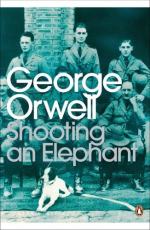|
This section contains 232 words (approx. 1 page at 400 words per page) |

|
Chapter 17 Summary
This was a concise little essay about poems that mean very little, but are generally fun- or at least funny. An example of the latter is probably the work Orwell cites called Solomon Grundy, who is "born on Monday," "Christened on Tuesday"… and by the end of the week is buried. "And that was the end of Solomon Grundy."
Edward Lear is known for his nonsense rhymes that are set in made-up countries with peculiar, nonsensical characters. His most famous is probably "The Owl and the Pussycat." In Lear's limericks, the first and last lines have the same rhyme, giving them a peculiar charm. Still, Orwell thinks that, although fun, there is not much of a great intent here. In fact, he doesn't see much of a purpose in "nonsense poetry" at all.
Chapter 17 Analysis
Orwell is somewhat ambivalent about the works of...
(read more from the Chapter 17 Summary)
|
This section contains 232 words (approx. 1 page at 400 words per page) |

|




